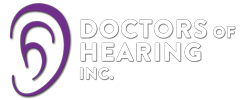What is a hearing aid dispenser, hearing instrument specialist, and hearing aid dealer?
According to the Department of Consumer Affairs; the qualifications for a person to become a hearing aid dealer are as follows:Forward Backward
1. Must be graduate from high school.
2. Be at least 18 years of age.
3. Pass California hearing aid written and practical exam.
According to the Department of Consumer Affairs; the qualifications for a person to become a hearing aid dealer are as follows:Forward Backward
1. Must be graduate from high school.
2. Be at least 18 years of age.
3. Pass California hearing aid written and practical exam.

A hearing aid dispenser usually obtains training for a few months from a licensed hearing aid dispenser and then pass a written and practical exam. Some have years of experience in this industry and some may have an AA degree or BA degree in other field, or perhaps a BA in communicate disorders, but they do not hold an advanced degree in Audiology (Doctorate degree). Audiologists are required to pass a national examination, a state exam, and supervised professional experience (300 hours) with a wide variety of ages and communication disorders under the direction of an educational institution approved by the Board which is crucial when we test and dispense hearing aids.
Most hearing aid dispensers work on commission.
Hearing aid dispensers do not have an audiology degree. They preform tests for the purpose of fitting hearing aids, but they can not preform specialized testing such as tympanometry that will give information about the status of the middle ear. They can not preform specialize testing to rule out a hidden hearing loss. They lack the training and education in ear pathology, neuro-function, diseases of the ear, physiology of the ear, physiology of the ear, physiology of balance system that at times can be associated with hearing loss, they lack training in brainsteam function. All these areas and training comes into account for sucessful fitting of hearing aids. They lack the counseling skills that are needed for a sucessful rehabilitation program, and are not able to communicate with physicians regarding the hearing mechanism. Hearing Aid dispensers depend on obtaining comprehensive hearing test results from an Audiologist and most of the time they rely on recommendations made by an Audiologist.
When they look in someone’s ear, hearing aid dispensers might not be able to properly make a referral to an ear nose and throat specialist. They lack the medical aspect experience and treatment options. If a patient comes in and complains that their hearing is muffled they are more likely to make an adjustment on the hearing aid since they do not know about the medical part of the ear that can be associated with this complaint. Audiologist preform Tympanometric measurments prior to hearing aid adjustments and if a problem exists; the patient then it's recommended to see their medical doctors and we sent them back with a report and test results.
We know that good hearing aid dispensers exists but the comparison are intended to make a distiction between Hearing Doctors and Hearing aid Dispensors as the public confused the two since Hearing aid dispensers tend to wear lab coats.
Most hearing aid dispensers work on commission.
Hearing aid dispensers do not have an audiology degree. They preform tests for the purpose of fitting hearing aids, but they can not preform specialized testing such as tympanometry that will give information about the status of the middle ear. They can not preform specialize testing to rule out a hidden hearing loss. They lack the training and education in ear pathology, neuro-function, diseases of the ear, physiology of the ear, physiology of the ear, physiology of balance system that at times can be associated with hearing loss, they lack training in brainsteam function. All these areas and training comes into account for sucessful fitting of hearing aids. They lack the counseling skills that are needed for a sucessful rehabilitation program, and are not able to communicate with physicians regarding the hearing mechanism. Hearing Aid dispensers depend on obtaining comprehensive hearing test results from an Audiologist and most of the time they rely on recommendations made by an Audiologist.
When they look in someone’s ear, hearing aid dispensers might not be able to properly make a referral to an ear nose and throat specialist. They lack the medical aspect experience and treatment options. If a patient comes in and complains that their hearing is muffled they are more likely to make an adjustment on the hearing aid since they do not know about the medical part of the ear that can be associated with this complaint. Audiologist preform Tympanometric measurments prior to hearing aid adjustments and if a problem exists; the patient then it's recommended to see their medical doctors and we sent them back with a report and test results.
We know that good hearing aid dispensers exists but the comparison are intended to make a distiction between Hearing Doctors and Hearing aid Dispensors as the public confused the two since Hearing aid dispensers tend to wear lab coats.
